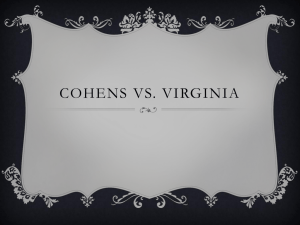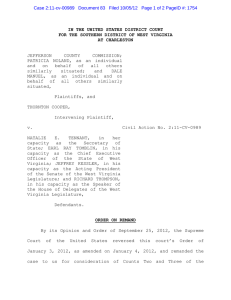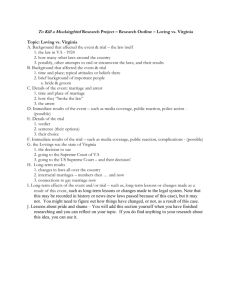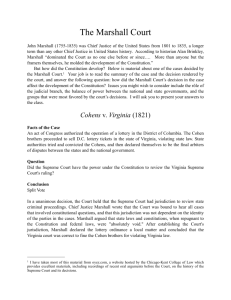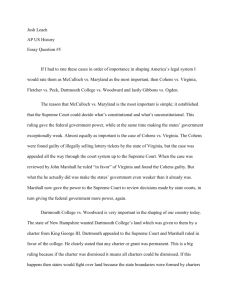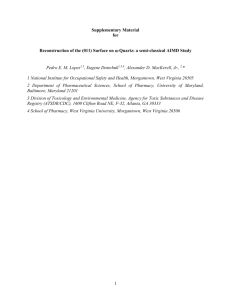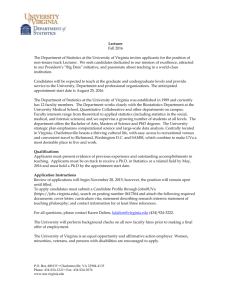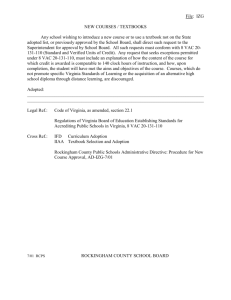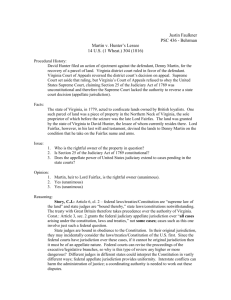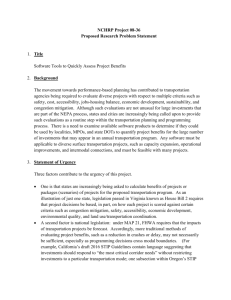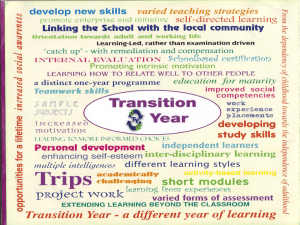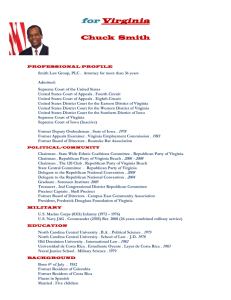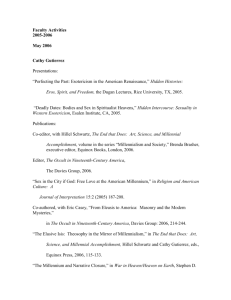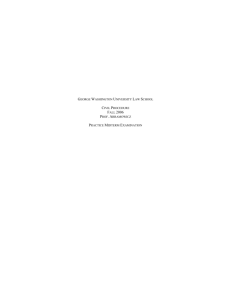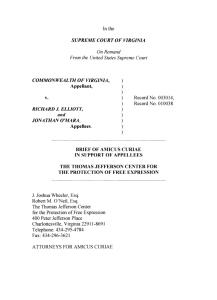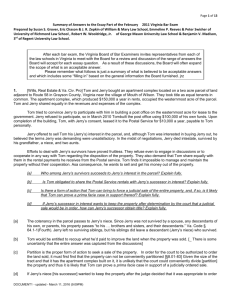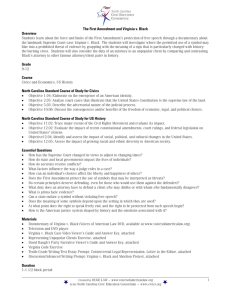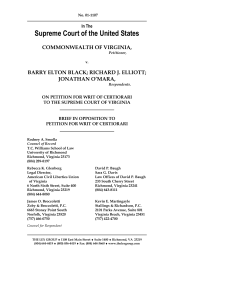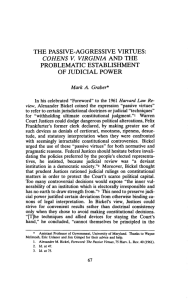cohen v. virginia 1821
advertisement
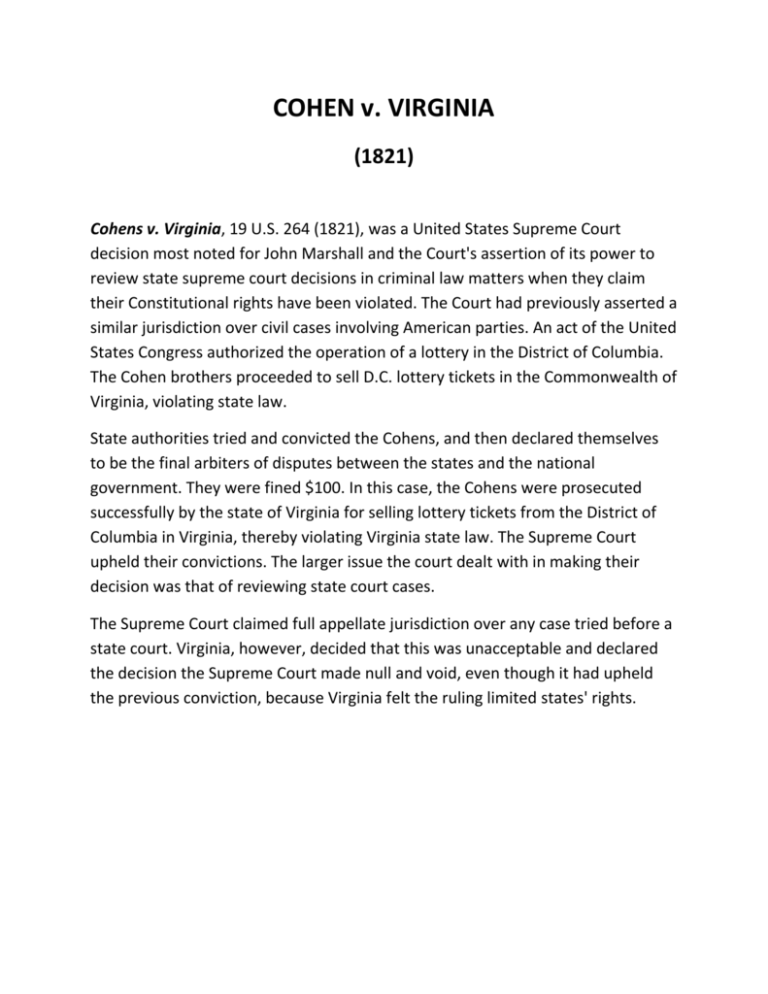
COHEN v. VIRGINIA (1821) Cohens v. Virginia, 19 U.S. 264 (1821), was a United States Supreme Court decision most noted for John Marshall and the Court's assertion of its power to review state supreme court decisions in criminal law matters when they claim their Constitutional rights have been violated. The Court had previously asserted a similar jurisdiction over civil cases involving American parties. An act of the United States Congress authorized the operation of a lottery in the District of Columbia. The Cohen brothers proceeded to sell D.C. lottery tickets in the Commonwealth of Virginia, violating state law. State authorities tried and convicted the Cohens, and then declared themselves to be the final arbiters of disputes between the states and the national government. They were fined $100. In this case, the Cohens were prosecuted successfully by the state of Virginia for selling lottery tickets from the District of Columbia in Virginia, thereby violating Virginia state law. The Supreme Court upheld their convictions. The larger issue the court dealt with in making their decision was that of reviewing state court cases. The Supreme Court claimed full appellate jurisdiction over any case tried before a state court. Virginia, however, decided that this was unacceptable and declared the decision the Supreme Court made null and void, even though it had upheld the previous conviction, because Virginia felt the ruling limited states' rights.
